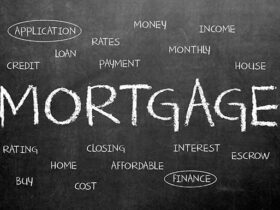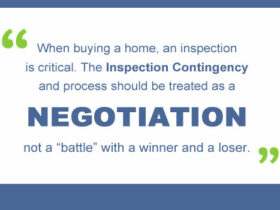 No matter how much you absolutely love a home or particular style of the house, there are criteria that will go a long way in defining how happy you will be in it—starting with being able to comfortably afford it.
No matter how much you absolutely love a home or particular style of the house, there are criteria that will go a long way in defining how happy you will be in it—starting with being able to comfortably afford it.
What’s really important in determining if you’re ready to buy a home is that you budget not just for a home, but for all your priorities. This means taking into account more than your current debt structure and the costs of a loan before filling-out the mortgage application. Do you thrive on being able to go skiing more than once a year? Are the kids starting school in the near future – or, heaven forbid, learning to drive, which means needing another car plus insurance? Are you coming to the realization that now – as in today – is when you need to start putting cash into their college funds?
These are your real priorities when exploring the possibility of homeownership. The home you find needs to accommodate not only your physical and aesthetic needs but all your priorities as well. When seen from this aspect, what you want to pay on a mortgage diminishes. Buy what you want – but do not spend as much as you qualify to borrow.
Meeting your priorities means pushing back and saying “no thanks” when you are confronted with statements like, “Interest rates are so low. You can get a lot more house for your money in today’s market” or, “This neighborhood is so upscale; it is certain to appreciate in the future.”
Understanding All Aspects of a Mortgage
When you buy a home, you are assuming debts beyond simply the mortgage value and interest due on a monthly basis.
Items such as property taxes, home insurance, and mortgage insurance (if required) are all part of what comprises your actual mortgage payments, along with closing costs. On top of all this, your monthly expenses need to be factored in, as well as the up-front cost of coming up with a down payment.
There is a lot to be said for 30-year mortgages, primarily the lower monthly payments. But will you be living in the same home by the time your mortgage is paid off? According to the National Association of Home Builders, the answer is no. Statistics show that the average family remains in their home for less than 12 years.
By buying a house on the lower end of your housing budget, you might be able to afford the monthly payment on a loan with a shorter term. Imagine paying your house off within 15 years and all the financial freedom that would give you. Big, expensive houses may have their own set of benefits, but being debt-free will be priceless.
Bigger Homes Cost More
Everything—from utilities to property taxes to home insurance—depends on the location, square footage, construction, and layout of your home. The larger the home, the higher your costs for standard maintenance and repairs. A leaky roof on a 4,000-square-foot turreted multi-level home is going to cost a lot more to repair than one on a single-level, 2,500-square-foot home. The same theory can be applied to the number of bathrooms, fireplaces, and so forth.
The Woes and Dangers of Being “House Poor”
Buying a home that makes you house poor and frantic every time you have to pay a bill, make plans, or even go to the market is a recipe for misery. Living paycheck to paycheck to support a mortgage is not what you intended to do with your life. And buying a home should not mean you have to suffer.
Gone are the days when real estate was an instant means to financial success. If the market stalls or goes downhill (we’ve been there in the recent past) having a home that costs you considerably less than what you qualified for means if there is another real estate market dip, it won’t impact you nearly as much. Plus, you won’t have used up your cash cushion in case of an emergency.
Avoiding the peril of being “house poor” is simple: it comes down to buying what you need. Buy in an area that has what you value. Peace of mind and a semblance of security is an easy trade-off for extra rooms you never use. Besides, there is less to clean.
There’s often a significant difference in what size loan you qualify for and what is a measured, careful, and beneficial purchase for your needs and future. Don’t let anyone talk you into buying more than you want or need. In actuality, if this means delaying or backing away from buying, that’s totally okay and actually a smart decision.
It all boils down to choices: when you spend less than you can afford, you have choices; when you overspend, you don’t. Just remember to look beyond this year, and even this decade, when you make that choice. You might be giving up more than you think.



